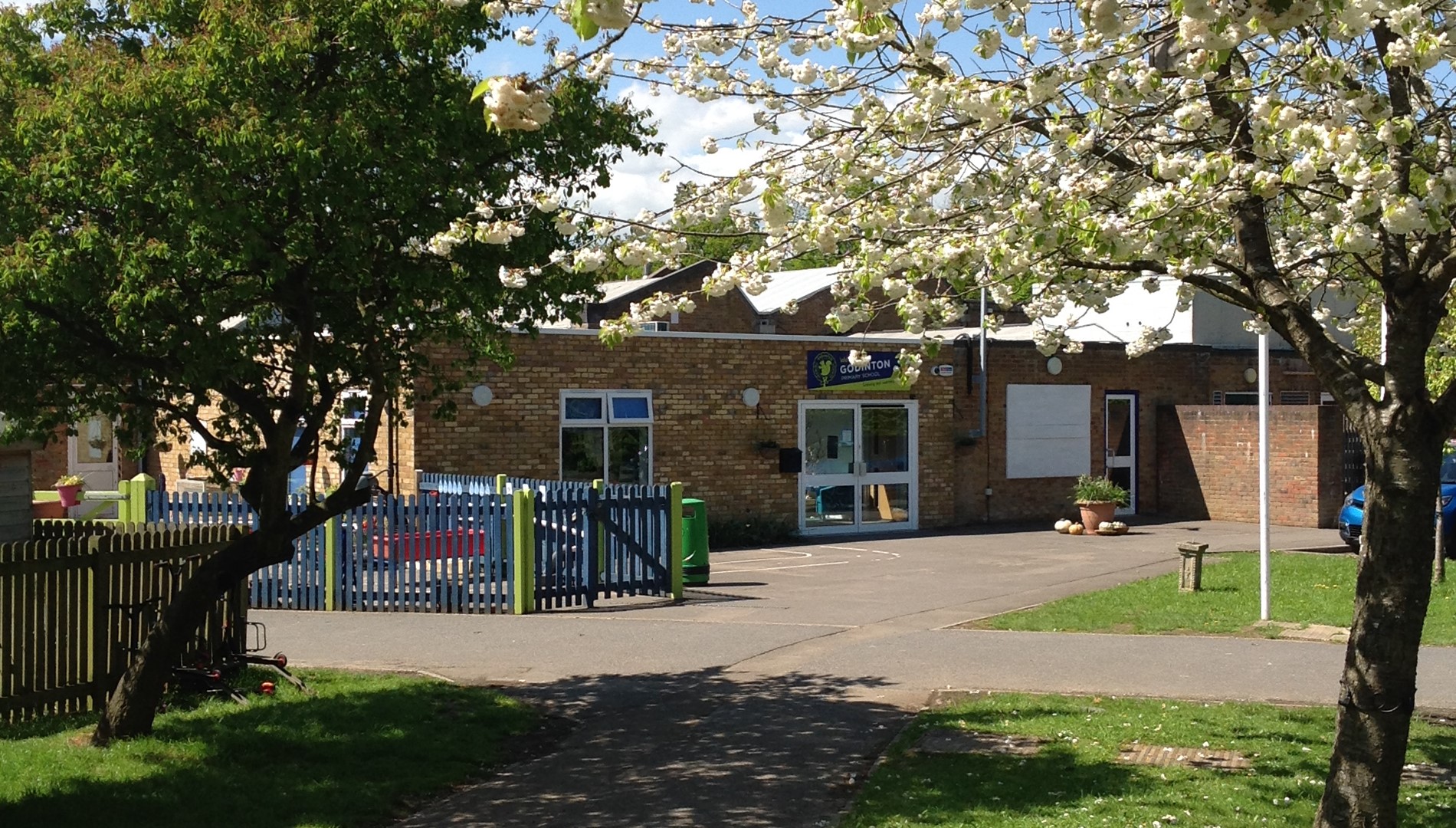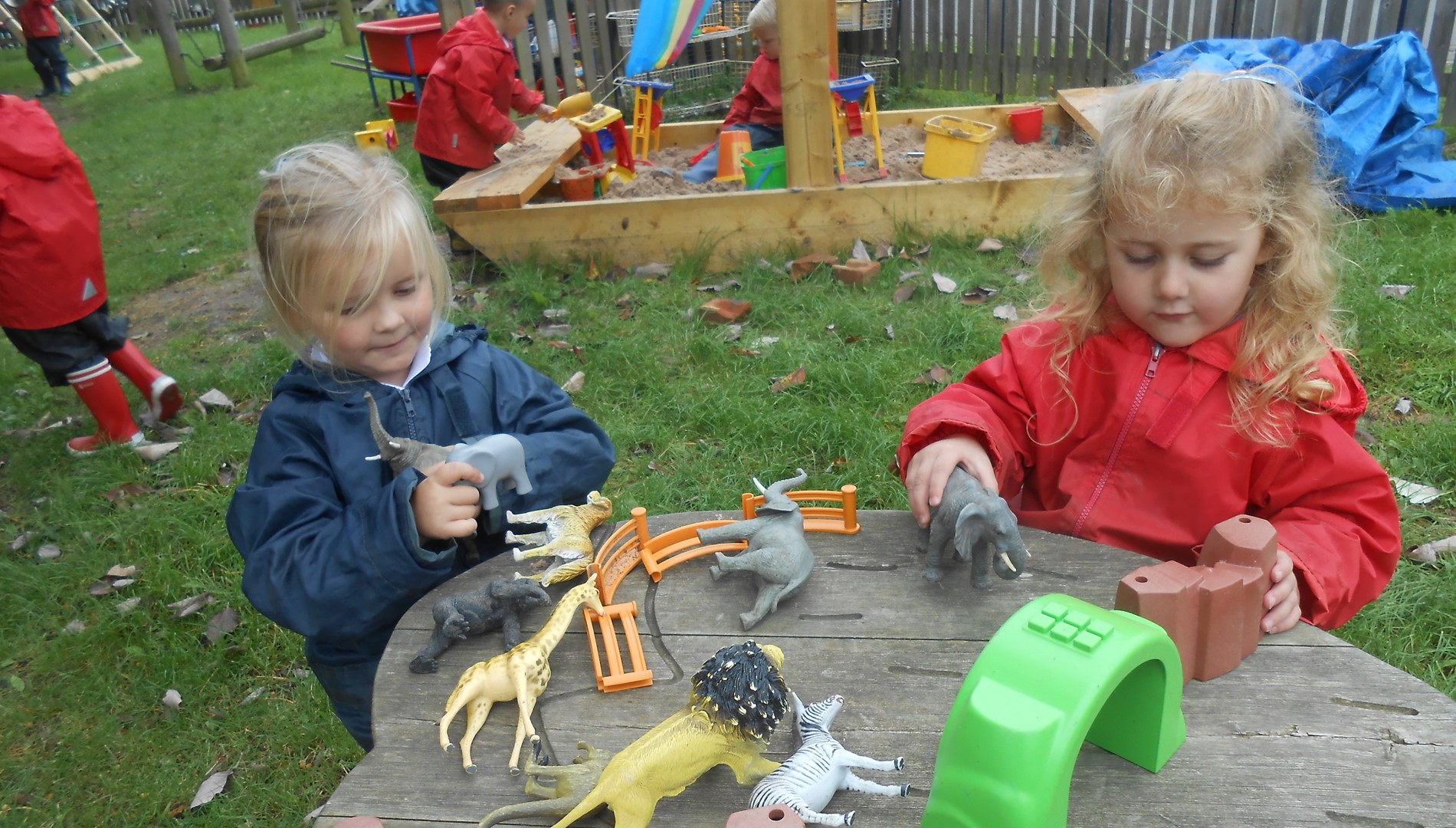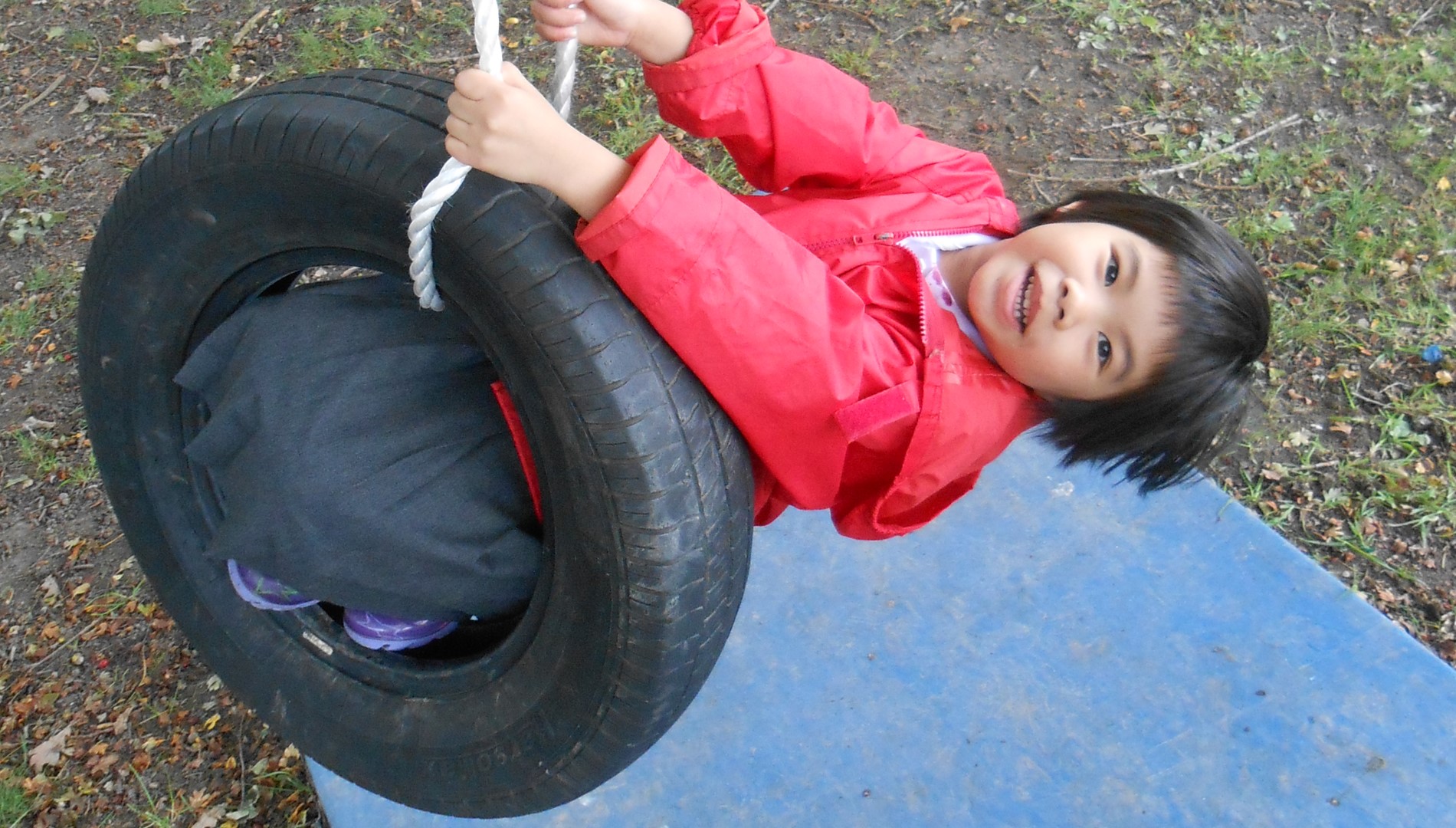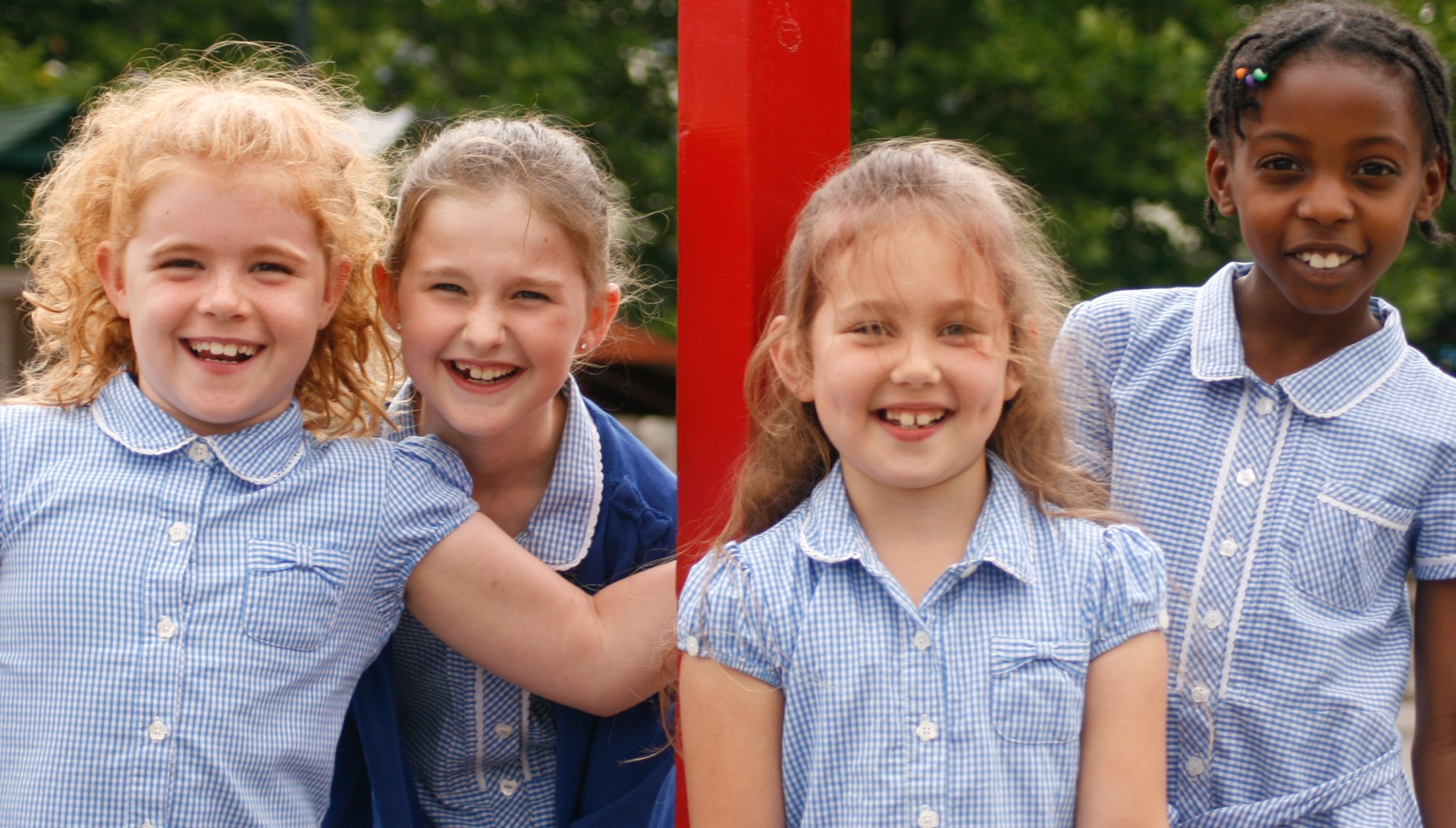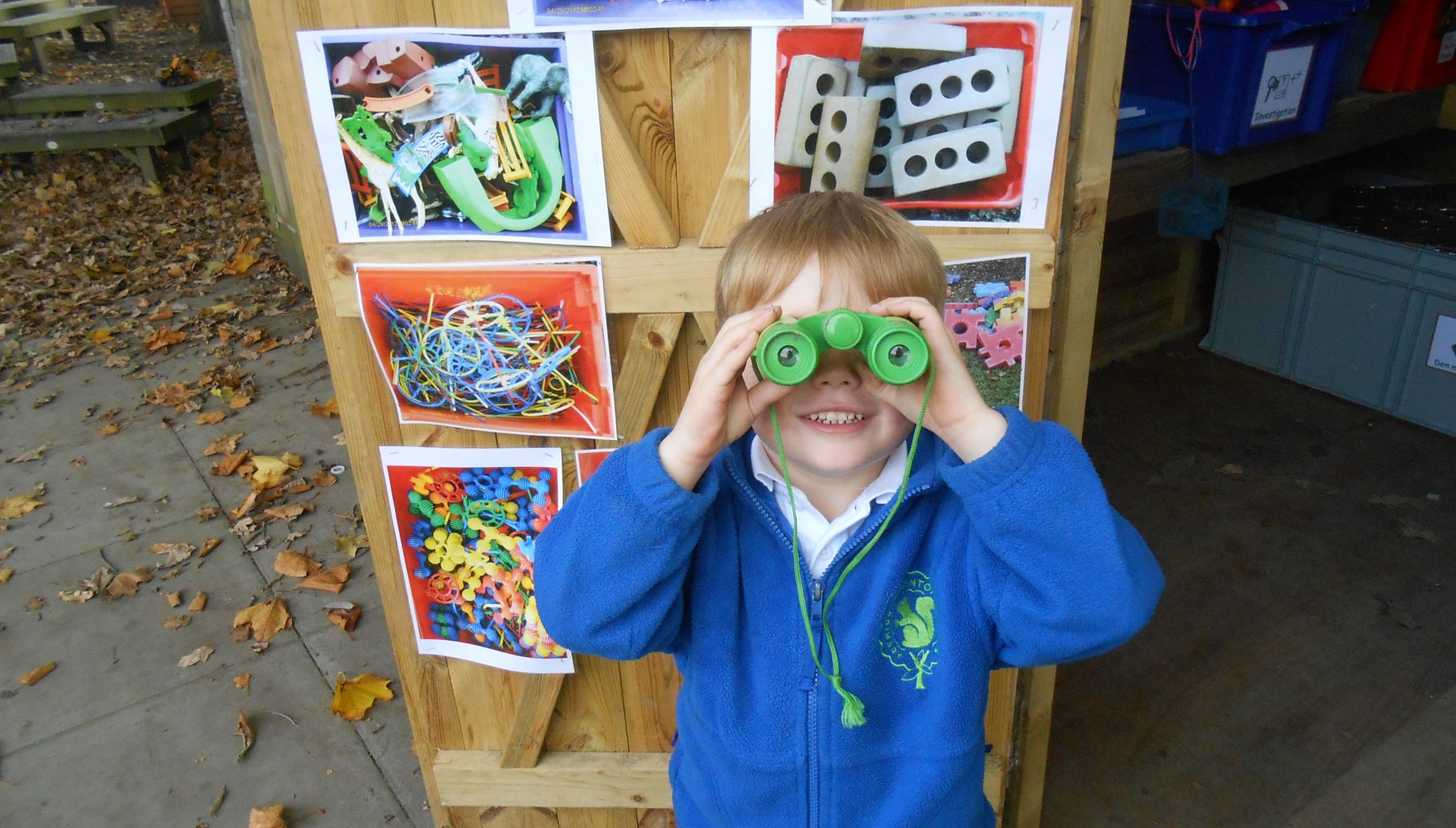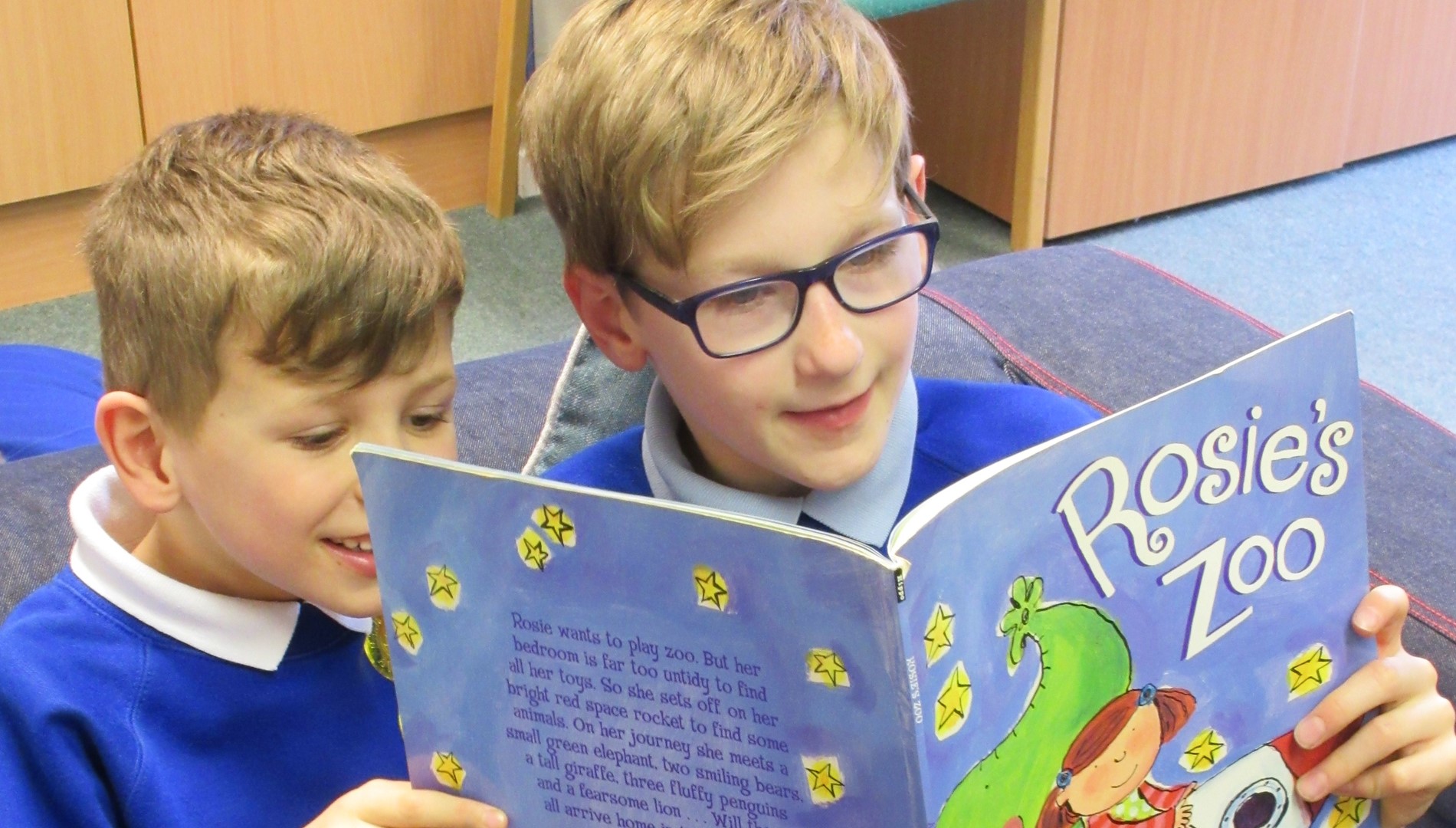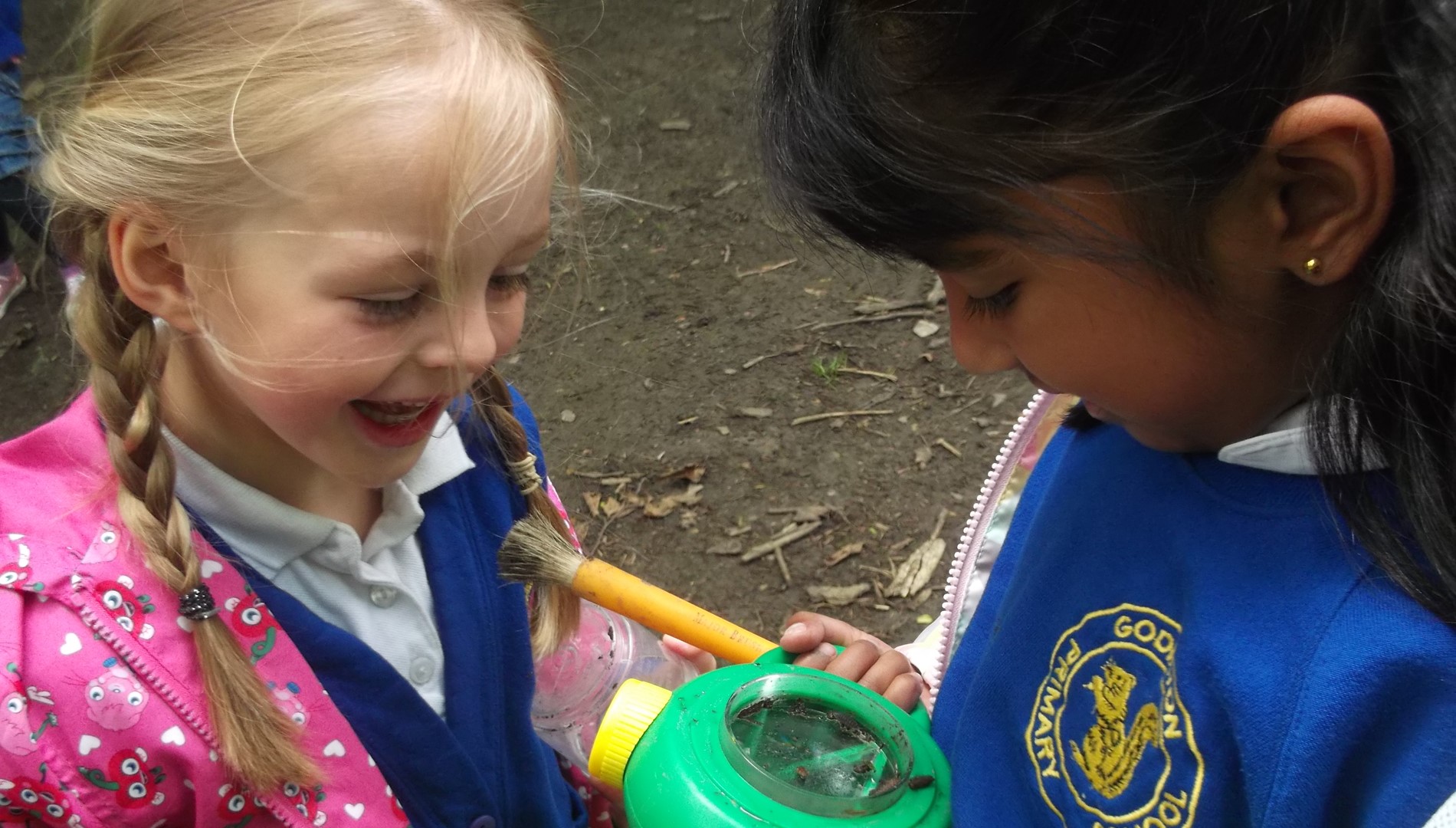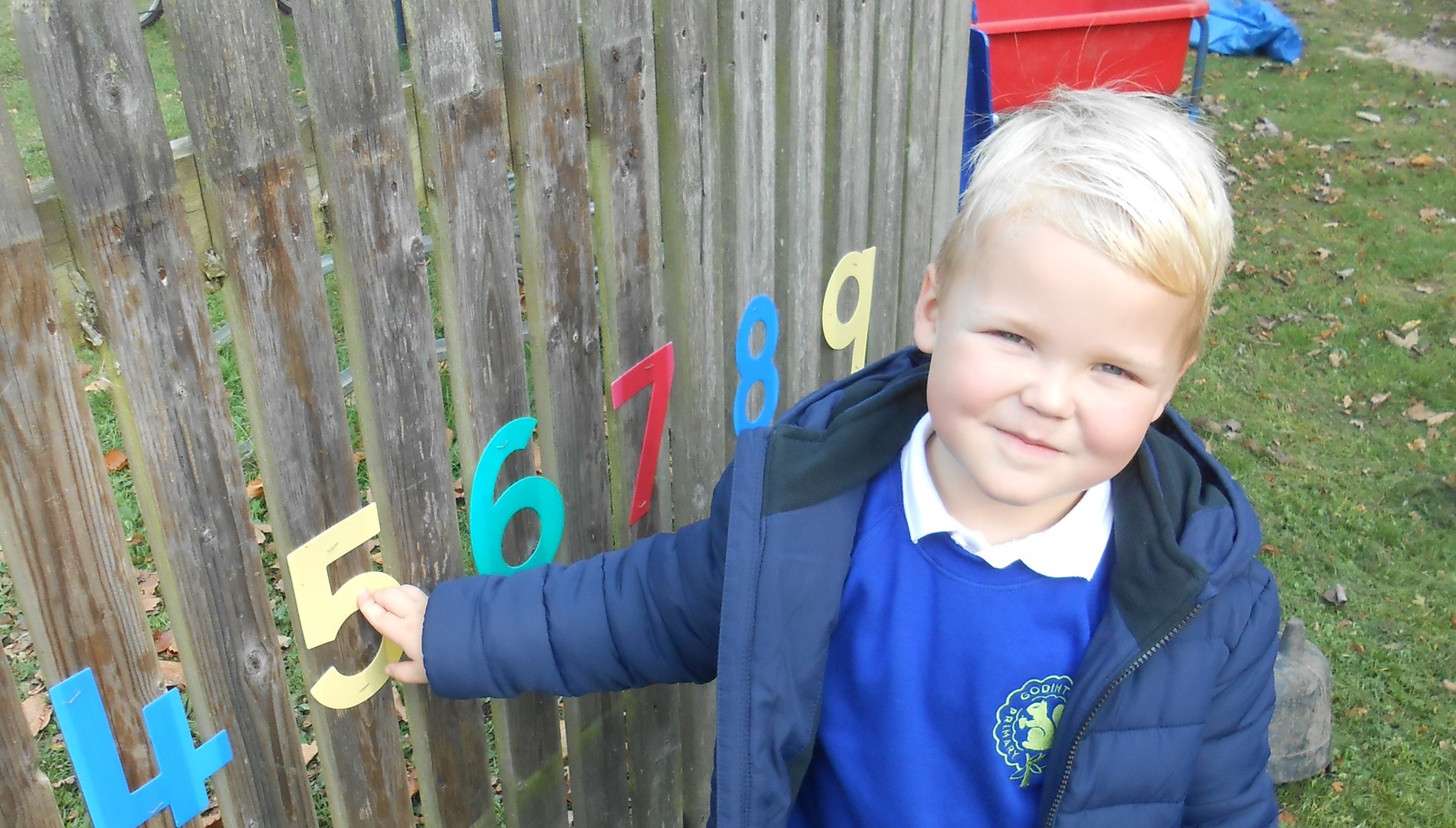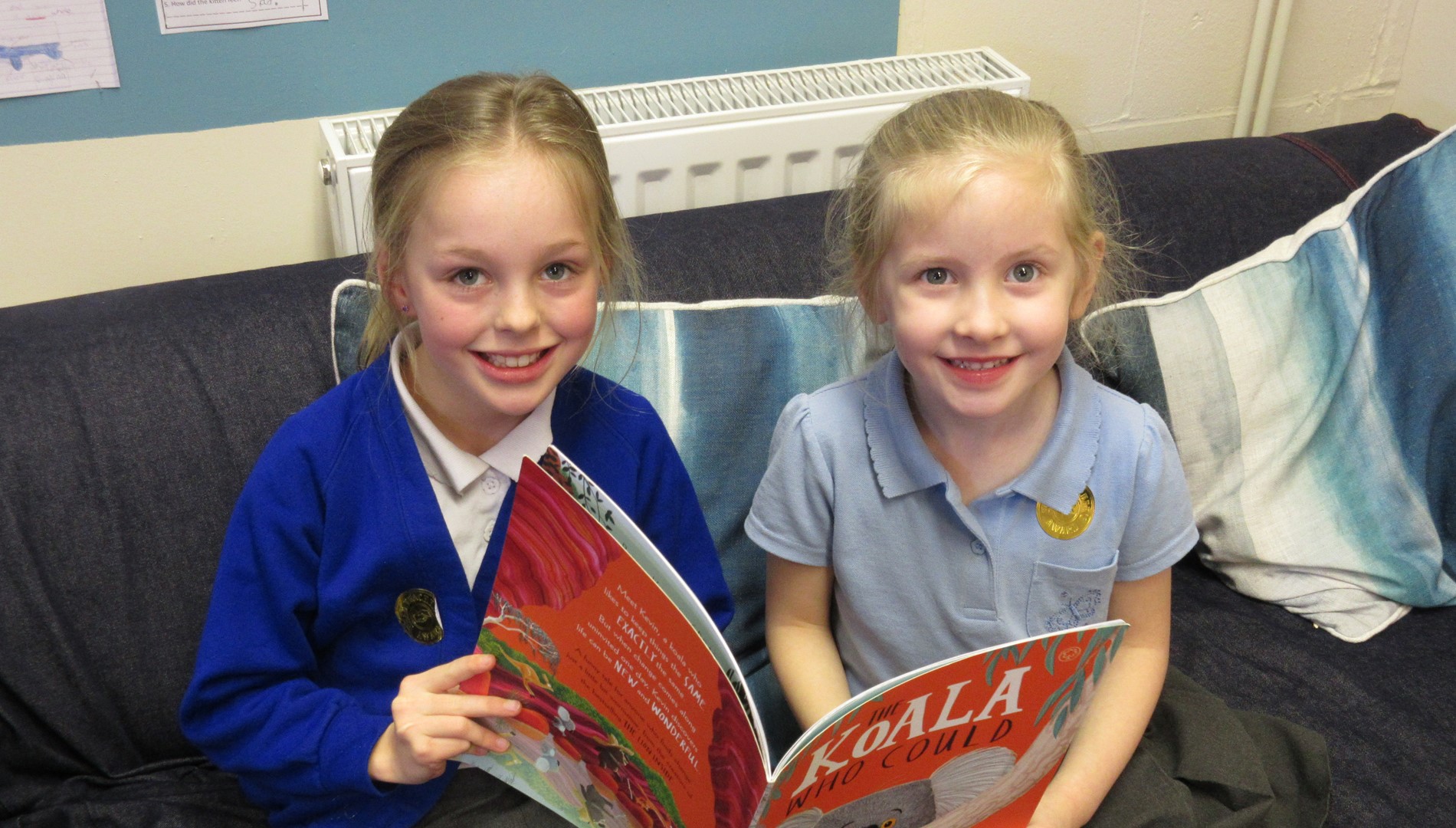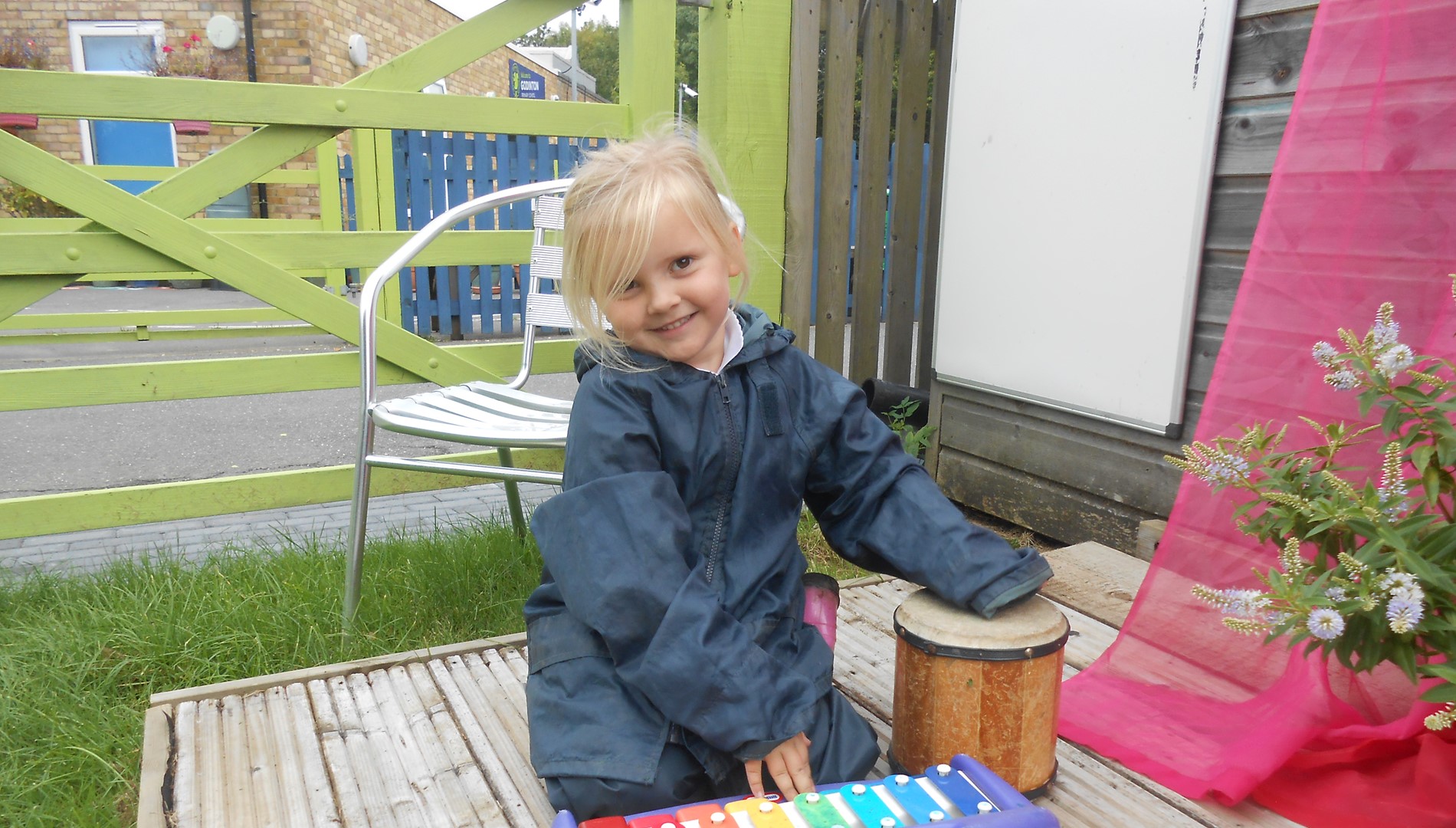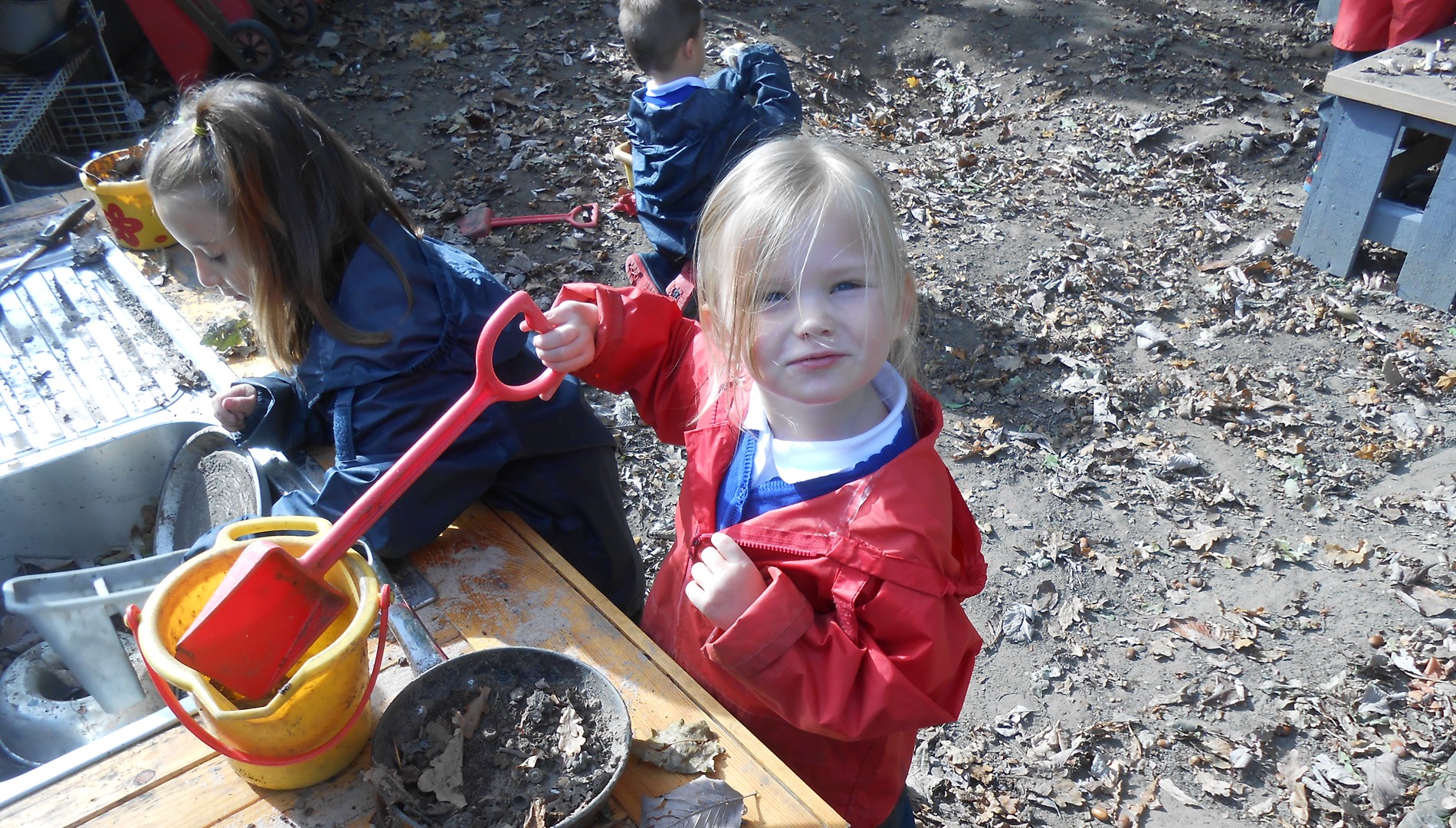Our Reading Adventure - The Reading Curriculum at Godinton
Curriculum Intent
At Godinton Primary School we believe that reading is an essential life skill and we are committed to enabling our children to become lifelong readers. Reading is also the gateway in which doors are opened to creativity and greater knowledge across the entire curriculum. It is a crucial part of a child’s development and can have a significant impact on writing, lifelong learning and achievements.
At Godinton we endeavour to promote a love of reading in our children. To achieve this pupils are exposed to a wide range of high quality text across a variety of genres. Pupils are given opportunities to increase their vocabulary, develop their fluency and dig deeper into the comprehension and meaning within a text.
Reading is a skill that enables children to develop their learning across the wider curriculum and lays the foundations for success in future lines of study and employment. We recognise the importance of taking a consistent whole school approach to the teaching of reading in order to close any gaps and to target the highest possible number of children attaining the expected standard or higher.
We have high expectations of all children and we encourage children to challenge themselves, persevere and pursue success.
Please click here to view our reading end points document.
As part of our Guiding Stars curriculum, Reading, Phonics and Writing are the leading light subjects for ‘Communication’.
Within our English curriculum, the children develop an understanding of the needs of an audience and respond accordingly. They become confident to use the written or spoken word, to share ideas and thoughts or to entertain, report or explain, setting the page alight with ideas. The children develop a desire to expand their vocabulary and to enrich how they write and speak, trying to find the right words for the right situation. They learn how to improve their work and are happy to listen to or respond to suggestions. We want our children to have a love of literature and find enjoyment in the written or spoken word of others.
Click on the Communication icon below to find out more about how the children’s understanding of communication progresses throughout these curriculum areas.
Curriculum Implementation
EYFS
The EYFS framework is structured very differently to the National Curriculum and it is organised across seven areas of learning rather than subject areas. Reading appears under the specific area of Literacy, but it also features in the Communication and Language, Understanding the World, and Expressive Arts and Design areas of learning.
In EYFS, children are taught phonics daily by their class teacher, with additional small group sessions led by teaching assistants. Phonics is also firmly embedded into the wider curriculum. Teachers routinely model correct segmenting and blending when reading and writing with the whole class, and during child-initiated sessions. The systematic synthetic phonics scheme used is Little Wandle Letters and Sounds.
Alongside the teaching of phonics, all children in EYFS take part in 3 adult-led reading sessions per week. Within these sessions, decodable Little Wandle books are used which are carefully matched to the children’s phonic ability, so they are able to read around 90% of the words with accuracy and fluency. Each reading session has a specific focus aimed at developing reading fluency, prosody (reading with expression) and comprehension. Class teachers also use reading practise sessions to make links to sounds being taught that week in Little Wandle phonics sessions, where possible. Additional whole-class sessions look at a broader range of texts including both fiction and non-fiction.
In addition to dedicated time to teach phonics and reading skills, teachers regularly read with their classes so all children have exposure to a wide range of texts and authors. This enables children, from an early age, to develop their own opinions about a range of stories, poems and information texts alongside continuing to promote a love of reading. Children are also given the opportunity to bring in favourite texts from home to share with the class.
It is our aim that when children at Godinton Primary School finish their first year at school and move into Year 1, they will be able to:
- Say a sound for each letter in the alphabet and at least 10 digraphs.
- Read words consistent with their phonic knowledge by sound blending.
- Read aloud simple sentences and books that are consistent with their phonic knowledge, including some common exception words.
- Demonstrate understanding of what has been read to them by retelling stories and narratives using their own words and recently introduced vocabulary.
- Anticipate (where appropriate) key events in stories.
- Use and understand recently introduced vocabulary during discussions about stories, non-fiction, rhymes and poems and during role-play.
- Offer explanations for why things might happen, making use of recently introduced vocabulary from stories, non-fiction, rhymes and poems when appropriate.
- Make use of props and materials when role-playing characters in narratives and stories.
- Invent, adapt and recount narratives and stories with their peers and their teacher
- Perform songs, rhymes, poems and stories with others, and (when appropriate) try to move in time to music.
Key Stage One
In KS1 children are taught phonics daily by their class teacher with additional small group sessions led by our experienced team of teaching assistants. Phonics is also firmly embedded into the wider curriculum. Teachers routinely model correct segmenting and blending when reading and writing with the whole class. The systematic synthetic phonics scheme used is Little Wandle Letters and Sounds.
Alongside the teaching of phonics, all children in KS1 take part in 3 adult-led reading sessions per week. Within these sessions decodable Little Wandle (Big Cat) books are used which are carefully matched to the children’s phonics ability, so children are able to read 90% of the words with fluency and accuracy. Each reading session has a specific focus aimed at developing reading fluency (decoding) prosody (reading with expression) and comprehension. Additional sessions look at a broader range of texts including both fiction and non-fiction. Lessons have a specific focus aimed at developing reading comprehension and vocabulary skills.
In Year 2, there are whole class guided reading sessions, which take place 3 times a week, in which teachers carefully select a text to be explored during each session. Lessons have a specific focus aimed at developing reading comprehension and vocabulary skills. For children who still need additional phonics support, Little Wandle Letters and Sounds Rapid catch-up programme is used. Daily sessions take place which focus on phonics and reading. decodable Little Wandle (Big Cat) books are used which are carefully matched to the children’s phonics ability, so children are able to read 90% of the words with fluency and accuracy. Each reading session has a specific focus aimed at developing reading fluency (decoding), prosody (reading with expression) and comprehension.
In addition to dedicated time to teach phonics and reading skills, teachers regularly read with their classes so all children have exposure to a wide range of texts and authors. This enables children, from an early age to develop their own opinions about a range of stories, poems and information texts alongside continuing to promote a love of reading.
Key Stage Two
At Godinton Primary School, we teach reading in Key Stage Two using a whole class, Guided Reading approach. Year 3 is seen as a transitionary year between KS1 and 2 so initially the sessions are shorter but more frequent: reading is initially taught five times a week as short whole class Guided Reading to build fluency and introduce the children to the VIPERS comprehension themes used in Upper School. This is then reduced throughout the year, finishing with three, one hour long whole class guided reading sessions per week at the end of year 3. The aim of this is to transition the children, support continued learning through fluency and comprehension and prepare them for how reading is taught in year 4.
In Years 4, 5 and 6 reading is taught as a dedicated subject for one hour twice a week.
During reading sessions in KS2 teachers use carefully selected texts to study. Where possible, the texts will be in line with the writing genres that are being taught in learning adventure writing sessions so children gain additional exposure to the particular text type being studied. Teachers plan reading sessions based on their assessment of pupil ability and the key skills that they need to develop using our progressive key skills document. Through whole class reading sessions, our children are exposed to high –quality texts that provide challenge and promote discussion. Children then work independently or with support, as planned for by the class teacher to answer specific questions related to lesson objective. Opportunities for whole class work to model written comprehension answers are also planned for. We want our child to be able to talk confidently about a text; its structure and layout and the intent of the vocabulary used. Children need to be able to read for meaning to gain pleasure from a text and deduce and infer meaning too.
It is our intention that as children move into KS2, they all have secure phonics skills and are able to read fluently. Where children are continuing to develop their phonics knowledge, regular phonics intervention groups are planned. Where individualised support or a different approach is required, we are also able to provide 1-1 sessions using a programme called ‘Soundwrite’. Some children start on this programme earlier. In KS2 we continue to provide children with a school reading book to take home which is matched to their reading ability. At the start of KS2, most children will have moved away from colour coded reading books and have a wider range of books to select from. For Years 3 and 4 these are our ‘silver books’ and in Years 5 and 6 our ‘gold’ books. We also have ‘bronze’ books which provide higher interest content for those children who need to maintain interest at a more accessible reading level. Teachers monitor the books that children are selecting and encourage them to read widely. Within the classrooms, we also have ‘recommended reads’ with star labels. These are the top recommended books that we want our children to have exposure to during their time in each year group. These include a wide range of fiction books, poetry and classical literature and are reflective of diverse cultures. These may be read to the children in class or children may borrow these to read in class during free reading periods.
Promotion of Reading
We want our children to enjoy reading opportunities and to maintain this enjoyment long in to adulthood. At Godinton Primary School, we hold regular reading initiatives to promote reading, both in school and at home. We have participated in local reading challenges, held extreme reading challenge photo competitions as well as setting 100 reading challenges. Our families have supported these initiates and children have participated enthusiastically.
Curriculum Impact
As we believe that Reading is an essential life skill, the impact of our reading curriculum goes beyond the results of the statutory assessments. Through the teaching of systematic phonics and reading enquiry, our children will leave Godinton Primary School as fluent, confident readers who can apply their knowledge and experience to a range of texts through the Key Stage 2 curriculum. Children will have a love of reading from a range of genres, cultures and authors
At the end of Key stage 2, it is our aim that our children reach or exceed age related expectations in reading, in line with national outcomes.
